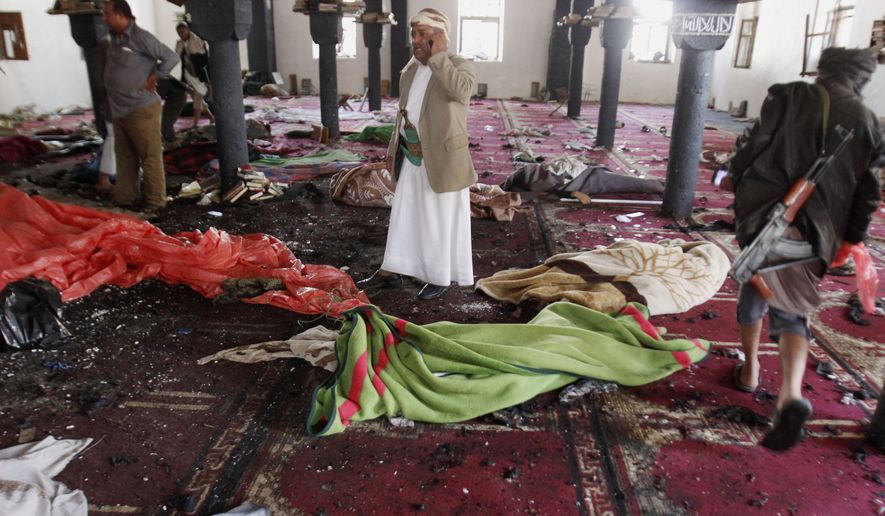Suicide bombers attacked two mosques in Yemen’s capital Friday, killing at least 130 and injuring almost 350, officials said.
The bombings targeted the Houthi fighters who seized control of Sanaa, Yemen’s capital, in January and forced President Abdu Rabu Mansour Hadi to flee. Initial descriptions by people at the mosques indicated that there may have been a blast inside one of the buildings, followed by car bomb explosions outside.
The Houthi-controlled television station Al-Masirah said that 137 people were killed and 345 injured.
A group calling themselves the Yemen branch of the Islamic State claimed responsibilities for the attacks. Security experts said the claim was posted on the same Internet forum where the group claimed its responsibilities for Wednesday’s museum attack in Tunisia that left 20 dead.
Blame for the attacks initially focused on al Qaeda in the Arabian Peninsula, as the Yemen branch of the Sunni terrorist organization has vowed to destroy the Shiite Houthi fighters. But a statement by al Qaeda said they were not responsible and had been instructed by the terrorist group’s leader, Ayman al-Zawahri, not to target mosques.
Although long considered a staunch U.S. ally in the region, Yemen has descended into increasing violence and civil war among the government, Houthi minority militants and al Qaeda terrorists. The bombings would mark the first direct involvement of the Islamic State in the conflict and another sign that the terrorist state is growing beyond its main areas in Syria and Iraq.
One survivor of the blasts told The Associated Press that he “fell on the ground, and when I regained consciousness, I found myself lying in a lake of blood.”
The State Department condemned the attacks, calling them brutal acts of terrorism.
“We call upon all actors within Yemen to halt all unilateral and offensive military actions,” spokesman Jeff Rathke said. “The way forward for Yemen must be through a political solution. We call upon all Yemeni parties to return in good faith to a political dialogue to resolve their differences.”
The mosque bombings come a day after a Houthi jet fired missiles at the palace where the deposed president was staying, though no one was reported to be injured.
Yemen’s state-run news agency said a prominent Houthi religious leader, Murtatha Al Mahathwari, was killed in the attacks. Fighting was also reported to have broken out in other cities around the nation, including the Houthi-controlled Saada and port city Aden.
• Phillip Swarts can be reached at pswarts@washingtontimes.com.




Please read our comment policy before commenting.